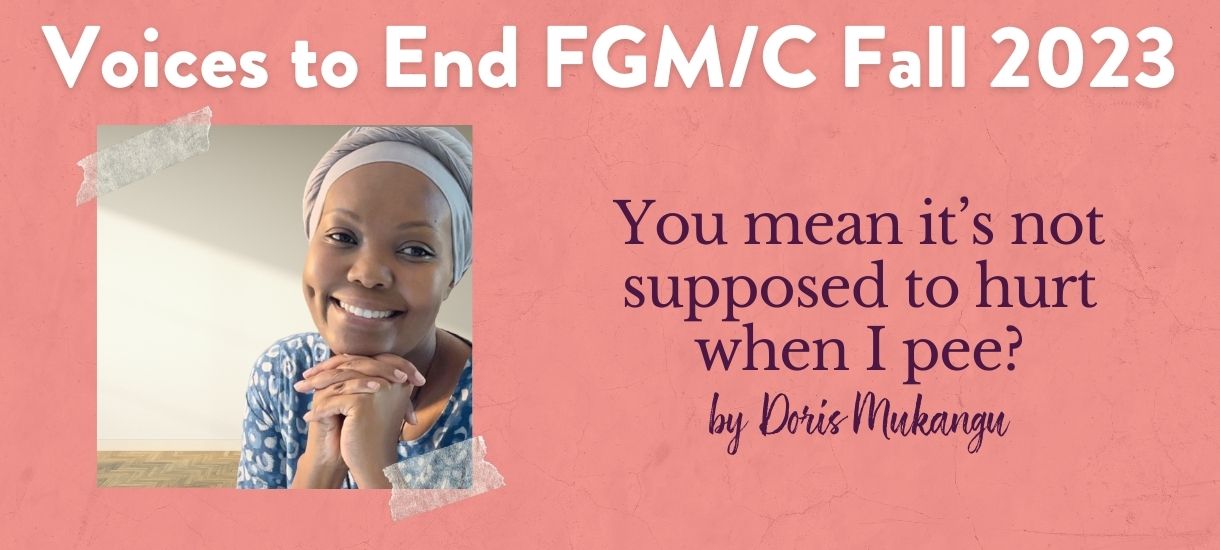Why did you want to attend the workshop and share your story?
I wanted to attend this workshop because I wanted to get a sense of the process of storytelling from a survivor’s and advocate's perspective. I am keeping in my heart hundreds of stories that survivors from my community have shared with me.
What story did you choose to tell and create into a digital story?
I chose to tell the story of medical complications caused by FGM/C and the cry for help from hundreds of women who shared their stories with me.
What have you learned or most enjoyed during the workshop and by meeting others who shared their stories?
The camaraderie and the shared lived experiences cannot be replicated. It was a once-in-a-lifetime experience that was divinely orchestrated with the right mix of participants present.
What kind of impact would you like your story to have?
I hope that my story will be a clarion call for folks to help me bring to light the need for medical care for hundreds of thousands of women who need help locally, nationally, and globally.
Is there anything in your digital story that you would like to share?
My digital story connects trauma, healing, and resilience to drawing strength from our ancestors. Our healing journey is incomplete without acknowledging their pain and their untold stories.
Doris Mukangu, MPH, is the Founder and Executive Director of the Amani Women Center, a comprehensive culturally tailored community center that provides comprehensive services that empower and contribute to the economic security and well-being of refugee and immigrant women and their families. As a graduate of Emory University, Rollins School of Public Health, and Harvard Kennedy School of Non-Profit Management, Mukangu has over eighteen years of experience serving in leadership roles with non-profit organizations on refugee affairs and health promotion and education. Mukangu has served as a technical expert on programs initiating and implementing culturally appropriate, trauma-informed equitable methods of training, program planning, evaluation, and dissemination. With a strong commitment to prompting wellbeing, advocacy, and empowerment to the most vulnerable populations, Mukangu founded Johari Africa; a women's economic empowerment program, served as vice president of the board of Tapestri Inc, ending violence and oppression in refugee and immigrant communities, and serves on the steering committee of US End FGM/C Network https://endfgmnetwork.org/.

